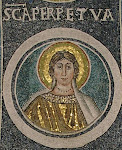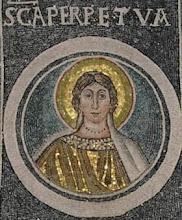I have heard others discuss the issue of demons and witchcraft with regard to dreams. But I have simply not had experience with demons or witchcraft. So, while I respect their warnings, I also see warnings away from material that I have experienced as positive.
For example, he writes:
Likewise, a terrifying dream of being stabbed or killed often reveals the presence of a spirit of fear from which one needs deliverance (see Tim 1:7, Heb 2:14-15) The very word used to describe such a dream, nightmare, means a dream given by a monster or demon.(pg 15)
Well, in dream work I have done, we understand this sort of dream to be about a part of oneself that is killing off another part of oneself. The dream is understood to be about maturation and growth. I will say that I agree with Milligan that it is a terrifying dream and that prayer is useful to overcome the fears. But I am just not sure that these dreams come from demons. Letting go of the old self and growing into the new self is not demonic, if one is growing in Christ.
Now Milligan also tells a specific example of a woman's nightmare that he says did come from God. As he looked at a repeating theme in the nightmare, he saw that it was telling her to revisit a situation from her past (when she had been involved n the occult). He says "When she asked God's forgiveness and renounced her involvement with the occult, her entire life changed dramatically." Here, he attributes the dream to God, but there is still an occult angle.
Perhaps this emphasis would be reassuring to Christians who are afraid of dreams because of fears of witchcraft and the occult. Such Christians can read this book knowing that Milligan is not attracted to the occult.
Milligan shares some dream theory with, of all people, Freud. They are the only dream theorists I know of that advocate the idea that dreams are deliberately coded to hide their meanings. Freud believed that the dreams originated with wishes that were then distorted and censored to disguise their antisocial nature. Milligan believes that dreams originating from God are deliberately coded to disguise their holy nature.
God will use names that rhyme, puns, riddles, proverbs, almost anything imaginable to hide the truth from our "old man" when he speaks to us in the night.For both Freud and Milligan, the dreams were disguised from our public social selves, but for very different reasons.
I strongly disagree with both Freud and Milligan on this. Yes, the dreams do use "rhyme, puns, riddles, proverbs, almost anything imaginable", but it is to break through and communicate, not to be obscure.





2 comments:
I am currently working on a graduate degree in counseling, studying the work of Freud and have the book by Ira Milligan that you are critiquing. And do not find them at all similar! Proverbs 25:2 states, "It is the glory of God to conceal a matter and the glory of kings to search it out." Meaning, God created us to enjoy treasure hunts and the symbolism found in dreams is just that-- a hunt for treasure that he invites us to enter. And I believe this is what Ira is communicating and NOT Freud's depraved way of thinking about the unconscious. I would encourage you to get more resources of Ira's-- I attended a Dream Seminar that he taught and I still listen to those teachings four years later, because there is so much truth and Word that he shares. I think I find your parallel of him to Freud offensive since their character character, motivation, and life in God are NOTHING alike.
Hi Jessie,
Yes, they are very different. My point was that despite being so extremely different, they had one thing in common, in a way -- that they both think that the meanings of dreams are deliberately disguised.
Post a Comment